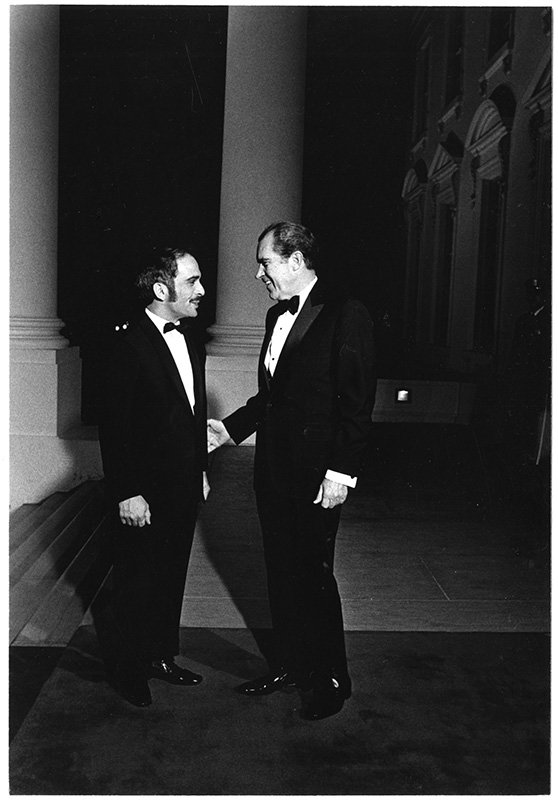
March 15, 1972
In a radio address delivered to the Jordanian people on Amman Radio, Jordan’s King Hussein proposed a federal solution to the Arab-Israeli conflict. The King’s plan called for the creation of a unified Jordanian-Palestinian state encompassing both Jordan and the West Bank with Hussein as its Monarch. The plan included an outline for both centralized and regional authority in two capitals, East Jerusalem for the Palestine region and Amman as both the central and Jordanian region capital.
The plan came eighteen months after Hussein had reasserted power in Jordan and defeated Palestinian attempts at discrediting and overthrowing his government. In July 1971, after a violent struggle that claimed more than 3,000 Palestinian fedayeen, Hussein had successfully expelled the PLO from Jordanian territory. Hussein was hopeful that the new plan would help restore support for him among Palestinians, both those living under Israeli control in the West Bank and the sizable population living in Jordan.
The following day, Prime Minister Golda Meir addressed the Knesset calling out the King for failing to promote peace or recognize Israel’s legitimate rights as part of his proposal. The Prime Minister stated, “No unilateral declarations or actions whatsoever will bring Jordan one inch nearer to peace. No sophistry, even if it wins banner headlines, will lead to any constructive change. There is only one way which has any prospects, namely, serious negotiations for a peaceful solution, a bold and realistic effort to reach understanding and agreement. Any other way will be futile. Israel is faithful to its policy: it is maintaining the situation as determined in the cease-fire agreements. It will endeavor to strengthen its position in compliance with the needs of its security and development, and is ready, with all its heart, for serious peace negotiations.”
Following the Prime Minister’s remarks, the Knesset passed a resolution rejecting the plan stating, “The Knesset has determined that the historic right of the Jewish people to the Land of Israel is beyond challenge.”
King Hussein suffered political fallout in the Arab capitals from issuing the plan as many Arab leaders saw the idea as a first step toward a separate Jordanian deal with Israel. Syria and the PLO rejected the plan. In April 1972, Egypt severed relations with Jordan over the plan. Later in March, and again in June 1972, Meir and Hussein engaged in secret, although unfruitful, peace talks. On March 28th, Hussein met with President Richard Nixon in Washington (shown in the photo). The United States refused to take an official position on the plan.
The complete text of Hussein’s radio address is available at Israel’s Ministry of Foreign Affairs website by clicking here: http://tinyurl.com/kx4v4yw. Golda Meir’s response and the Knesset resolution of March 16 are available here: http://tinyurl.com/m2lqnff
